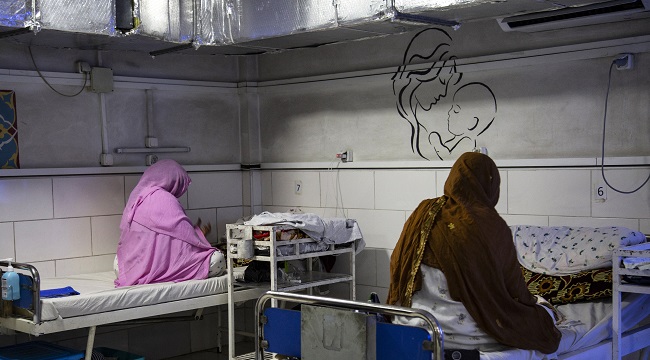Afghan Women Risk Lives Every Two Hours in Childbirth
Zubaida, hailing from rural Khost in eastern Afghanistan, traveled to a specialized maternity hospital, fearing the common fate of maternal or infant mortality.
Exhausted from the previous day’s delivery, she expressed relief but acknowledged the risks avoided by not giving birth at home.
Not all women reaching the hospital share Zubaida’s fortune. Late arrivals pose a challenge, with midwives like Therese Tuyisabingere at the Doctors Without Borders (MSF) facility in Khost striving to save lives.
The hospital handles high-risk pregnancies, often from mothers lacking prenatal care, contributing to Afghanistan’s alarming maternal mortality rate.
Afghanistan ranks among the world’s worst for childbirth deaths, with one woman succumbing every two hours, according to UN spokesman Stephane Dujarric.
Disparities between rural and urban areas compound the issue, with remote regions facing significantly higher maternal death rates.
The return of the Taliban and the ensuing insurgency have exacerbated challenges, leading to a “brain drain” of medical expertise. Gynecologists leaving the country and restrictions on mobile medical teams worsen access to care.
The squeeze on women’s public roles, limited education, and economic strain amid the country’s crisis further amplify risks.
Financial burdens on families, overworked and underpaid midwives in public hospitals, and the need for patients to provide their own medication add to the complexities.
In this context, many women opt to deliver at home due to financial constraints, contributing to the 40-80% range of home births across the country.
Islam Bibi, pregnant with triplets, sought help at the MSF facility in Khost, reflecting the struggles faced by many in accessing healthcare.
Multiple pregnancies, common in Afghanistan due to a cultural emphasis on having many children, increase the risk of maternal mortality.
Despite these challenges, there are pockets of progress, such as the maternity center in Paktia province run by the Norwegian Afghanistan Committee (NAC).
This center, created for and by women, aims to reduce risks in childbirth, offering hope amid the broader maternal healthcare crisis in Afghanistan.
